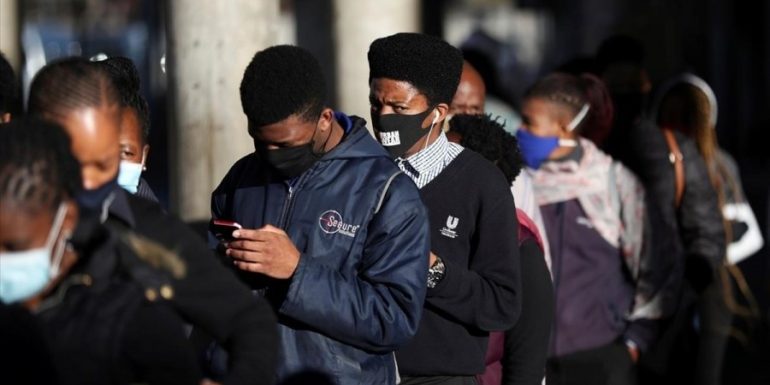The Omicron strain of the new coronavirus has caused an outbreak in South Africa, but there are currently far fewer hospitalizations and deaths than in previous waves of the epidemic, health officials said today.
On Wednesday, South Africa recorded the highest number of cases the country has ever seen during the pandemic, due to the extremely rapid spread of the Omicron variant, said Michelle Grum, of the National Institute of Communicable Diseases (NICD).
"Hospitalizations are not increasing at such a spectacular rate," Grum added in a press conference. "We are starting to see some increases, but relatively small increases in deaths," he said.
Wassila Jasat, also of the NICD, said the number of people in need of oxygen was "lower than it was in any of the previous waves" of the pandemic.
"Patients do appear to stay shorter in oxygen," he added.
According to Health Minister Joe Faala, these figures do not indicate that Omicron is less contagious, but rather that vaccines against COVID-19 allow serious diseases to be prevented.
"This is probably due to a significant vaccination coverage," especially among the elderly, he stressed.
About a third of the population has been fully vaccinated against it COVID-19, but this number is 66% for people over 60 years old.
The elderly are more at risk of developing severe symptoms of the disease caused by the new coronavirus.
The Omicron strain, which has many mutations, was first identified in South Africa and Botswana in November, causing worldwide panic, and looks more contagious than other strains of the new coronavirus.
With more than three million cases, South Africa is by far the country hardest hit by the new coronavirus pandemic on the African continent.
